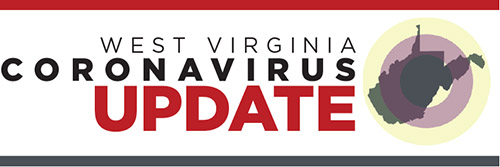By W.Va. Sen. John Unger and W.Va. Sen. Ron Stollings, co-chairs
West Virginia’s plan to reopen its economy is like a car driving down a darken road. The state is moving so fast that it has overrun its headlights. As co-chairs of the West Virginia Public Health Caucus, we are concerned that in this scenario the state will come to a bridge that is out or a road that ends unexpectedly and we won’t know until it’s too late.

Let us be clear: we believe the state can re-open parts of its economy and protect its citizens. We realize that both are important to our state’s survival.
As of Monday, West Virginia had 1,366 confirmed coronavirus cases and 54 deaths. The Department of Health and Human Resources reports that 63,469 West Virginians have been tested for the virus.
At first glance, these number seem good. However, consider that we have only tested 3.5 percent of our population. In our opinion, that percentage is not sufficient enough to control the spread once businesses are operating again.
Unlike some of our surrounding states, West Virginia officials aren’t making public county-by-county, zip code and demographic data of those residents that have already been tested. We aren’t sure if that information wasn’t collected or if it’s not being provided to the public. Zip code information would allow local health care experts and the public to see total number of tests done and the COVID-19 impact on their local community. For example, it would have allowed us to see in real time the virus’ impact on seniors, minorities and other vulnerable individuals.
For the past two months, state residents have done their part in “flattening the curve” by staying at home and social distancing. This was supposed to give the state time to perfect its testing plan and provide health care providers with PPEs. West Virginia still doesn’t have enough of both.
As we move forward with re-opening the state:
1. We need testing available to the general public and those tests need to be available at no charge. This will protect family members, co-workers, retail and restaurant employees, and give a concerned public a sense of confidence as they venture out into the public;
2. We need to make available demographic information (real data) of those tested that can help public health officials build local responses to the virus; and finally
3. West Virginia needs to use some of the $1.25 billion that it has received from the federal government to pay for coronavirus testing, contact tracing, and PPEs. By doing so, we will be better prepared to meet the challenges ahead.
Make no mistake, a second wave of the virus is coming and could lead to devastating results. We have the nation’s oldest population and our residents have more underlying health issues than any state in the country. As important as our economy is, nothing is worth the loss of a grandparent, spouse or loved one.
By carefully re-opening the state, we can test more people, trace the exposure of those with the virus and, ultimately, save more lives.
The Public Health Caucus, consisting of legislators, policymakers and health care experts, looks forward to continuing to work with local communities, the state, and federal officials on the appropriate plan for re-opening the state in order to restart our economy while avoiding needless suffering and death of West Virginians.





